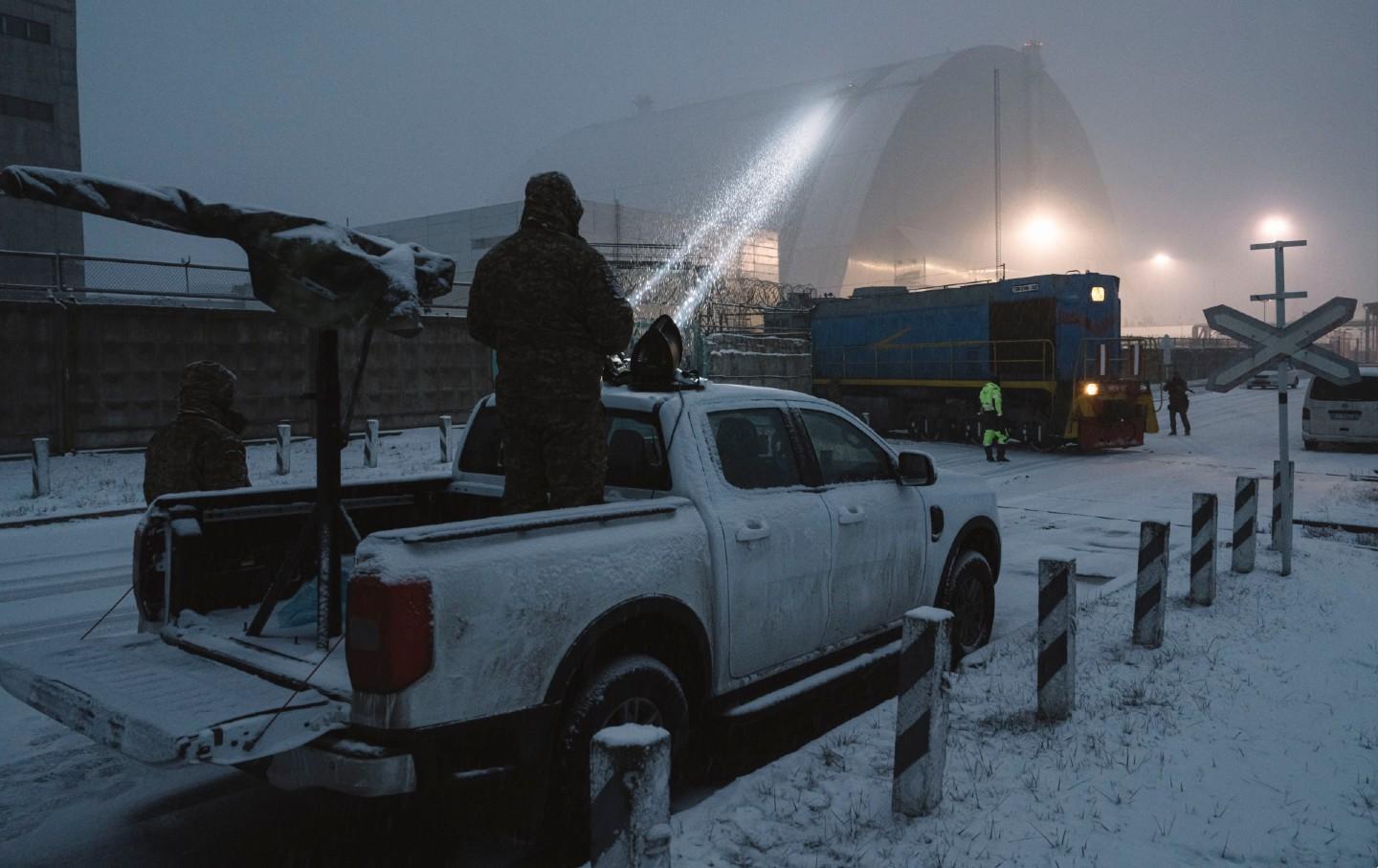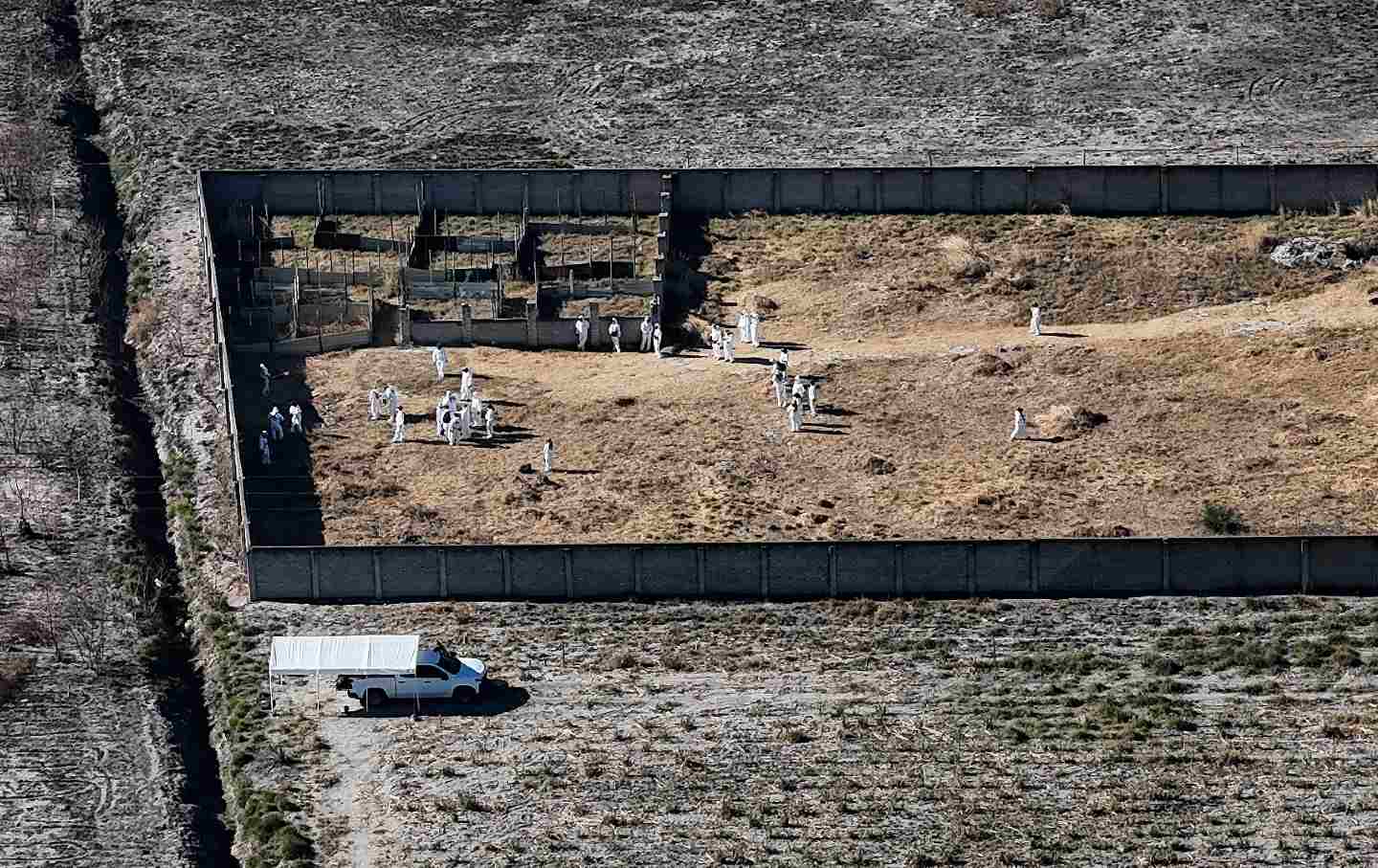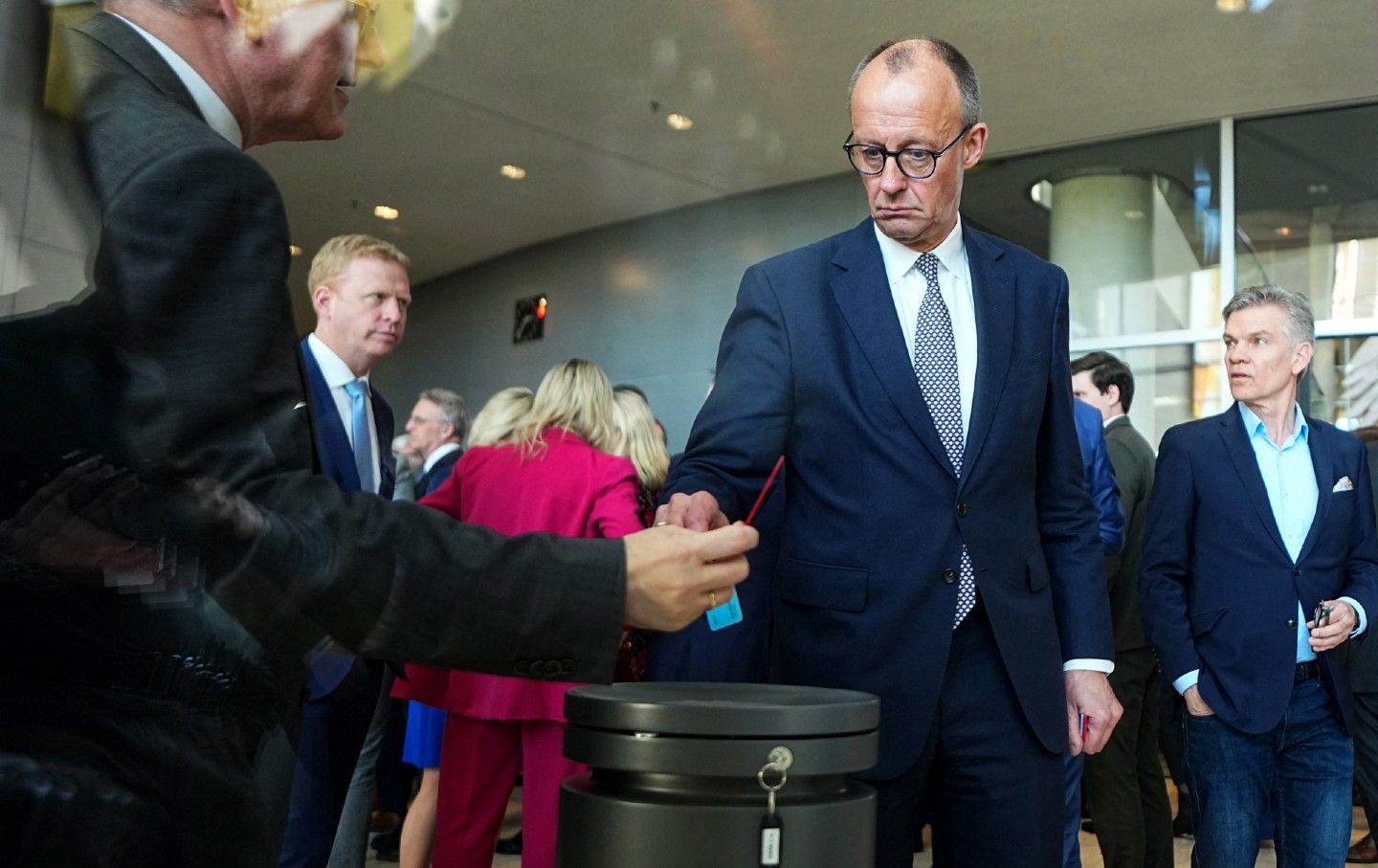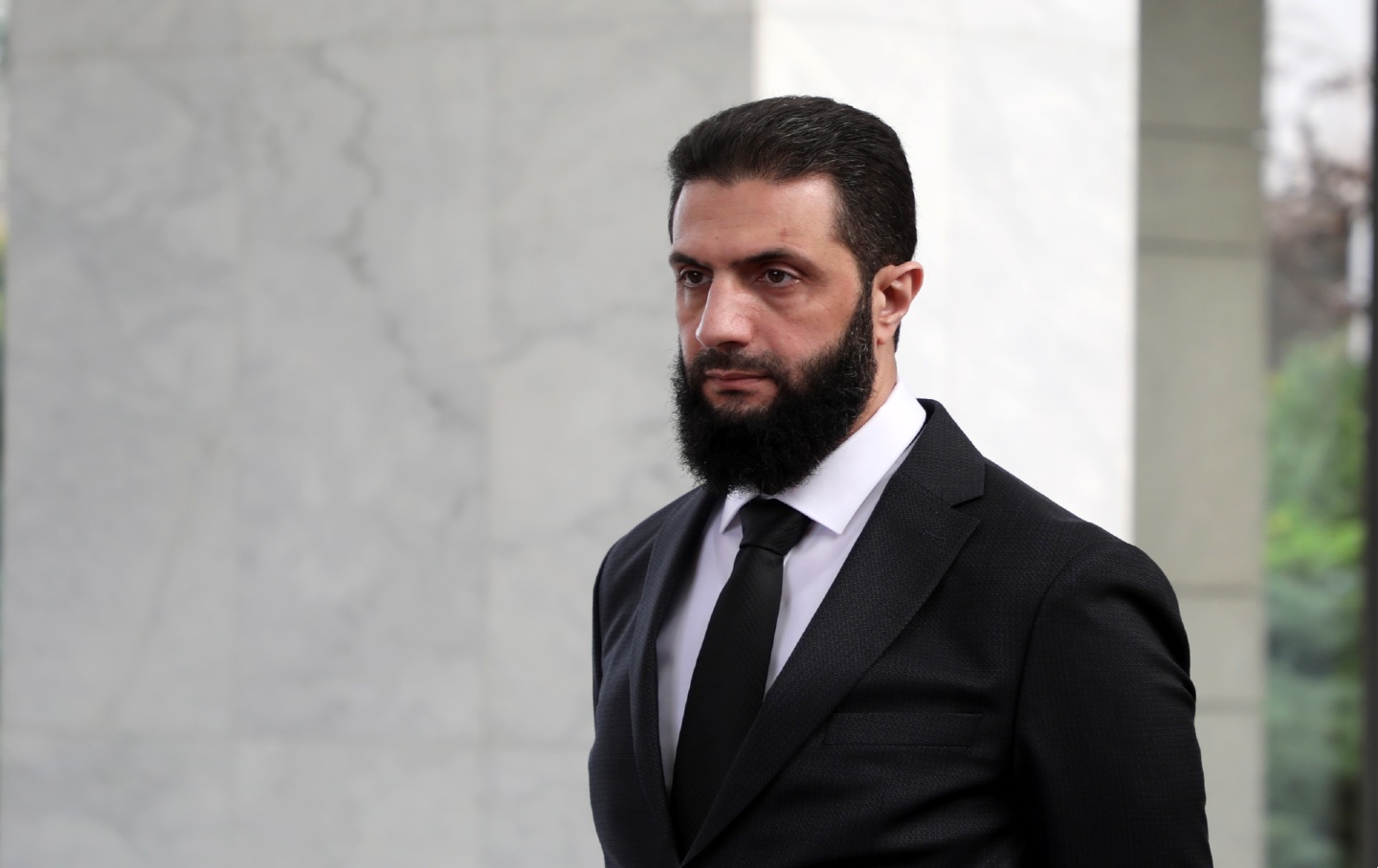Gaza Is a Nightmare Today, but We Will Not Stop Dreaming of Freedom
This war is happening for one reason: the prolonged suffering and occupation that Palestinians have endured for seven decades.
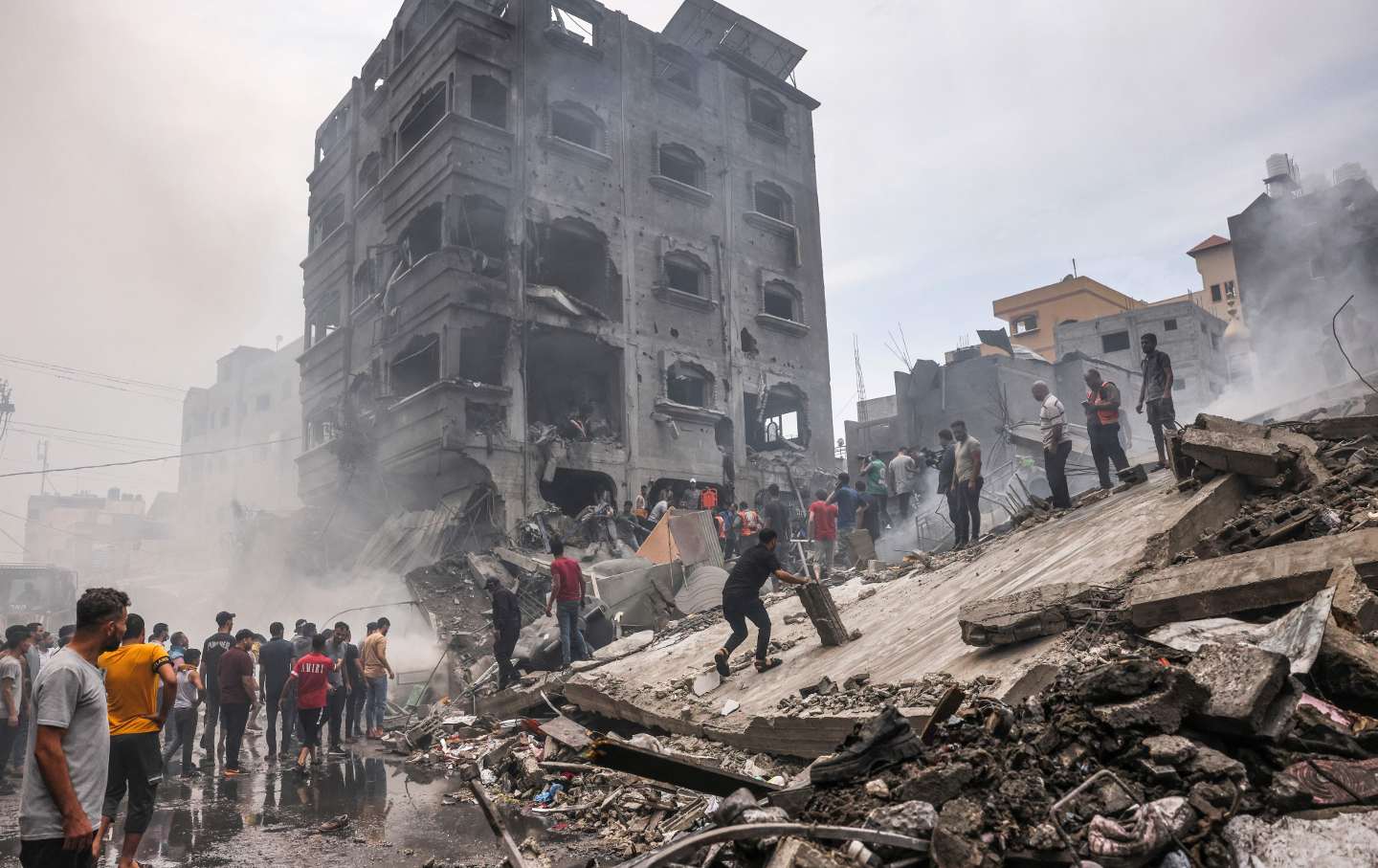
Palestinians search for survivors after an Israeli airstrike on buildings in the refugee camp of Jabalia in the Gaza Strip on October 9, 2023.
(Mohammed Abed / AFP via Getty Images)Gaza City—The sound of war is all around me as I write this. For the third consecutive day, the Israeli military has continued its bombardment on the Gaza Strip in response to the surprise attack by Hamas and other Palestinian groups on southern Israel last Saturday morning. These attacks have involved artillery, naval, and aerial strikes.
At least 510 Palestinians have reportedly been killed in Gaza as of this writing, with a further 2,750 people injured. At least 800 Israelis have also reportedly been killed.
On Monday afternoon, Israel announced what it described as a “complete siege” of Gaza, cutting off the strip’s access to electricity, fuel, water, and food. “We are fighting human animals and we are acting accordingly,” Defense Minister Yoav Gallant said.
The electricity supply had already plunged by at least 80 percent even before this announcement, affecting our access to clean water and the ability of hospitals to cope with casualties. Israel also bombed the buildings housing the companies supplying much of the region with Internet access, leaving people even more cut off from the outside world.
As mediation efforts from regional and international actors continues to falter, Gazans are increasingly concerned about the possibility of a prolonged confrontation with Israel on multiple fronts. There are mounting fears of a ground invasion by Israeli forces into the strip, especially as the fighting shows no signs of abating and as the death toll mounts. While the Israeli army claims to be targeting resistance posts and so-called “terror” locations in Gaza, the reality is that civilians have borne the brunt of the tragedy unfolding so far.
Once again, ordinary citizens find themselves caught in the midst of death and war. This marks the fifth time in the span of just five years that Gazans are reliving the horrors of conflict and the dashing of their fragile hopes for a peaceful and secure life in the near future.
To try and live through war never gets easier. My family and I have suffered through previous Israeli wars on Gaza, but that has not lessened the terror we feel now. It has not dulled the sharp pain in our chests that comes with every air strike. It has not made our lungs more able to handle the suffocating smoke that the constant jet raids leave in their wake. Instead, we are feeling an unprecedented level of fear. There is more horror, louder explosions. The ground is shaking like never before. It is a newer, worse version of the same challenge we have been facing for years: basic survival.
Things are especially horrific at night. The entire strip looms in the dark with no electricity. The sound of explosions—and the light that comes with them—are the people’s only company. Israeli Prime Minister Benjamin Netanyahu advised Gazans to “leave” ahead of the bombings to come—a threat backed up by warnings from the military that we have received throughout the past few days. This is intended to give Israel the justification to destroy whole neighborhoods and public spaces. But, of course, people in Gaza have nowhere to go—and the Israeli military still goes on targeting civilian buildings and complexes.
On Sunday, the Palestinian Ministry of Health said that the Israeli army had committed at least eight massacres against families in Gaza, resulting in the killing of about 54 citizens. One strike killed 19 members of the same family. On Monday, Israel bombed the Jabalia refugee camp, killing dozens. Also, some of the hit targets were banks, public spaces, seaports, farmlands, and residential compounds.
There are some people who will read everything I have just described and respond with a variation of, “This is awful, but aren’t you only in this situation because of the attack launched by Hamas?”
On one level, it is obvious that this weekend’s violence began with the surprise assault from Hamas. But this line of thinking presupposes that everything in Gaza was peaceful until Hamas decided to disrupt that peace, or that no Palestinians have been dying at Israeli hands before the last two days.
The reality is that Israel has been slowly killing all 2.3 million people in Gaza for the past 16 years, systematically subjugating Gazans to a series of apartheid policies that have affected the most basic details of our lives. Palestinians in the occupied West Bank are also subjected to daily violence and degradation. The aim is to dispossess the Palestinians to the point that the people are left stranded with nothing but mere calls for the outside world to end what so many have called a form of “collective punishment.”
Popular
“swipe left below to view more authors”Swipe →Israel does everything it can to make life in Gaza unbearable. It controls all of Gaza’s water resources. It imposes illegal barriers on all the entry points to the strip, effectively trapping Gazans inside (though some of those barriers have been breached in the last two days). It controls the flow of goods and services in and out of the strip, leaving it with the unilateral power to cut those services off, as it is doing now. It purposefully throttles Gaza’s economy.
Palestinians who require medical attention outside Gaza often face insurmountable obstacles in obtaining necessary care. Similarly, young Palestinians are routinely prevented from pursuing their academic dreams at international colleges simply because they had the misfortune of being born as Palestinians in Gaza.
The people of Gaza endure daily hardships and injustices, yearning for a resolution that will allow them to lead dignified lives free from the burden of occupation and blockade. And when they do attempt to peacefully protest these conditions, Israel slaughters them in cold blood.
So the real question should not be “Why is this happening now?” It should be “How did this not happen sooner?” No people can be expected to endure the kind of oppression and discrimination that Palestinians face at the hands of the Israeli government forever without any kind of response. While Israel claims to be waging war against Hamas and other Palestinian resistance factions, it seeks to justify its war crimes and engages in collective punishment against the Palestinian people.
Even if Israel were to win this war, it should not be seen as a victory. Hamas and other groups enjoy popular support for the same reason that colonized people everywhere have supported armed struggle throughout the centuries. The current conflict didn’t begin just two days ago; it began when Israel decided to treat Palestinians as less than equal human beings and forcibly displaced them from their ancestral lands and towns, the same lands they yearn to return to today.
If the people were not behind Hamas at this moment, they would be supporting anyone who uses whatever means they have to defend their land and people, to defy the prolonged suffering and occupation they have endured for seven decades amid the world’s silence and complicity.
The current conflict may come to an end if Palestinians manage to secure temporary conditions that meet their strategic needs, like lifting the Gaza blockade, easing the lives of Palestinians in the West Bank, and halting the aggression against Palestinians in the Al-Aqsa Mosque. But the underlying conflict will end only when the occupation ends, when apartheid ends, and when all of Palestine is free.
It’s worth questioning why Palestinians don’t hear calls for peace when they are forced to endure daily misery in Gaza, when they are denied the right to resist unjustified killings in Jenin, when they are driven from their homes in Jerusalem, or when they are imprisoned for chanting “no to apartheid” in the West Bank. The world often remains silent in the face of these ongoing injustices, and only speaks up when Palestinians exercise their legitimate and valid right to self-determination and self-defense against a cruel occupation. Only then can we hear loud condemnations.
Life in Palestine and Gaza has never been what most would consider “normal.” It may take a long time for the immediate war to subside, but the reality is that even during so-called “peace” times, the oppressive ideology that undermines Palestinian lives persists. The Gaza blockade is reimposed, and the ongoing assaults against Indigenous Palestinians in Jerusalem and the West Bank continue.
It is during such times, when Israel aims at terrorizing, killing, and ultimately fragmenting the people, that we become more empowered from the inside. We know that our very existence is a form of resistance. The question, then, isn’t why Palestinians are fighting. Rather, it is how they will continue to resist the occupation until they achieve their ultimate goal of liberation.

